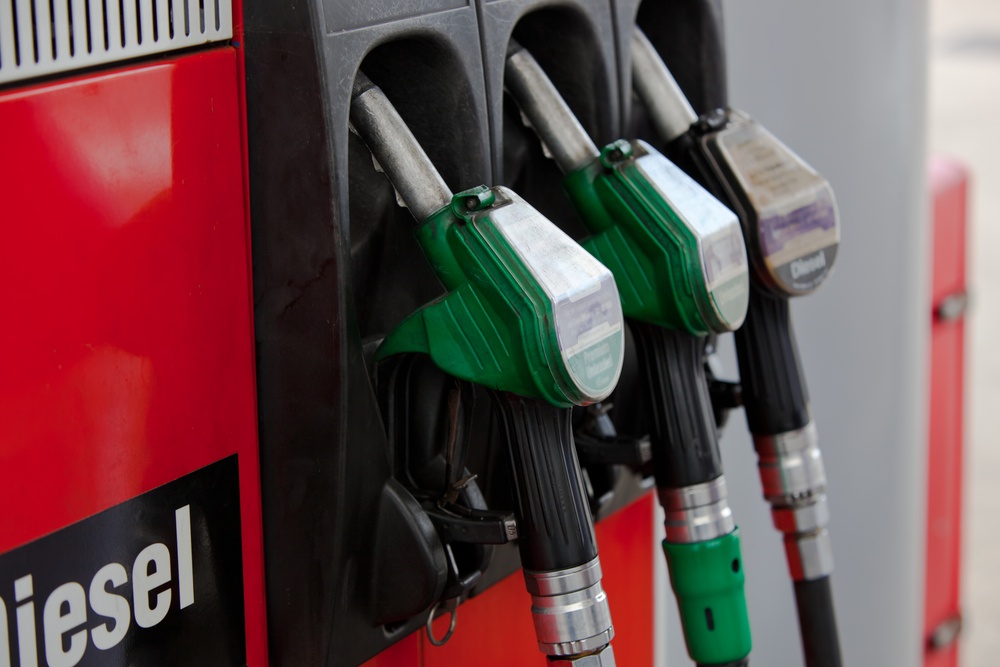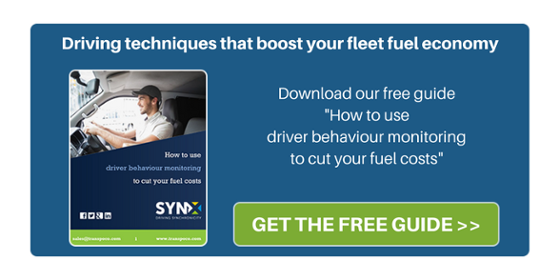
Fleet managers reiterating the importance of driving techniques in order to boost fuel economy may feel repetitious for most drivers; but the simple truth is if you are able to properly address driving behaviour, it definitely has long-term positive effects for your fleet in terms of costs, safety and environment.
We recently came across an interesting infographic on driving behaviours that boost your fuel economy published by On Stride Financial and entitled 13 Driving Tactics to Save Fuel, though the infographic has been created for end-users and not for fleets, there are actually some useful principles to take from it in order to adjust driver behaviour to a more fuel efficient style.

We have listed the points of the infographic followed by our opinion of these tips. Have a good read through and let us know what you think!
1. Use google maps to avoid driving in traffic jams—we promote route planning, and, what’s more, with our technology you can do it with Google Maps. There are history options for traffic as well, so you can detect the most fuel efficient route for your drivers and plan accordingly.
2. Shed unnecessary weight—according to the Energy Saving Trust publication for the UK Department of Transport entitled Advising fuel efficient driving techniques for your fleet, anything adding weight to a vehicle increases fuel consumption.
3. Drive between 55-65 MPH on the motorway—the speed advised by the AA quoted in the infographic reminds us that excessive speed needs to be avoided.
4. Avoid unnecessary overtaking—we do agree with the fact that overtaking should be kept to a minimum and only attempted when strictly necessary as it can be risky. For some vehicle types and on some roads, it is also forbidden.
5. Change gears at the right time—using the gears wisely helps you cut fuel bills. According to the Energy Saving Trust publication, research into the effect of the use of gears on fuel consumption shows that both petrol and diesel cars shifting up at low RPM and 50% accelerator position result in the lowest fuel consumption.
6. Close car windows and use a/c at high speeds—here we actually do not completely agree, as having the air conditioning turned on always impacts on a vehicle. According to the Energy Saving Trust publication, air conditioning systems pump (compress) a fluid (refrigerant) around a circuit: the fluid is made to evaporate in one part of the circuit (absorbing the heat) and condenses in another part (dispelling the heat). With vehicle a/c, the fluid in the circuit evaporates within the vehicle due to the heat and condenses at a point outside where the heat is dissipated. The compressor that drives the movement of this fluid is powered by the vehicle engine, increasing fuel consumption.
7. Avoid switching off the engine at mid-drive—here we also disagree with the infographic, as any unnecessary idling lasting more than one minute should be avoided at all costs.
8., 9., 10. Going easy on the throttle, maintaining a steady speed and being gentle on the brakes are all behaviours we wholeheartedly support: a smooth driving style, anticipating the road ahead to avoid unnecessary braking and acceleration as well as avoiding dangerous driving events such as rapid acceleration or harsh braking.
11., 12., 13. Use the right oil, keep your tyres inflated and regularly service your car—these all comprise the best practices of fleet maintenance. Vehicles need to be regularly maintained with the suitable products, tyre pressure checked regularly and servicing performed; it helps fuel savings but also improves global safety.



